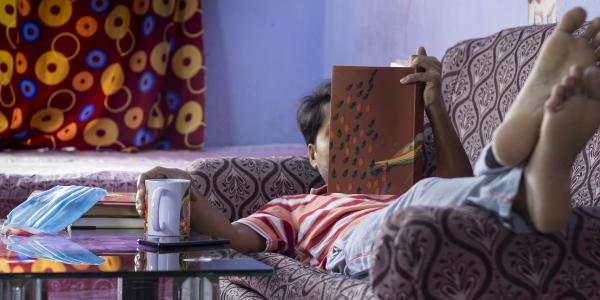Dengue fever was the first disease that I was introduced to in medical school, at least during a lecture. It is also known as bone-break fever to give you just a sense of how painful an infectious disease it can be. Even in pre and now post COVID times, few of us in the US are aware of this disease that
“…is caused by a virus that infects an estimated 390 million people every year, and kills about 25,000; the World Health Organization has described it as one of the top 10 threats to global health. It spreads through the bites of mosquitoes, particularly the species Aedes aegypti. Utarini and her colleagues have spent the past decade turning these insects from highways of dengue into cul-de-sacs. They’ve loaded the mosquitoes with a bacterium called Wolbachia, which prevents them from being infected by dengue viruses. Wolbachia spreads very quickly: If a small number of carrier mosquitoes are released into a neighborhood, almost all of the local insects should be dengue-free within a few months. It’s as if Utarini’s team vaccinated a few individuals against a disease, and soon after the whole population had herd immunity."
With all of our work with gene editing mosquitoes, perhaps Nature offers a different path? From The Atlantic, A Pivotal Mosquito Experiment Could Not Have Gone Better
As the economy does or does not rebound, there continues to be a great deal of turmoil around a “living wage.” Andrew Yang has made this a key principle in his perhaps successful run to become New York City’s mayor. And then there is the perennial discussion around a minimum wage. I have a bias; I think if you work 40 hours a week, that should be sufficient to support you and someone else. In any case, the additional sticking points in these controversies are who is an employee, entitled to healthcare coverage, and who is an independent contractor. It involves more than just those gig jobs at Uber, Lyft and DoorDash.
“He told his colleagues that after years of reporting from Iraq, he had requested and received health insurance before the birth of his first child. Other writers were shocked, according to several people who were there. Under The New Yorker’s structure, even some of the best-known writers are considered “contractors,” and their bosses had given them the impression that health insurance was not a possibility.”
The New York Times reports on an ongoing unionization attempt at the New Yorker, Why The New Yorker’s Stars Didn’t Join Its Union
My time in MBA school did open up the world of economics and how various approaches give you quite differing views of the economy. But Elain Schwartz from EconLife captures one of the essences in The Economic Lenses That Divide Us
We’ve written and read about the possible leak from Wuhan’s virology lab, from scientists and politicians. A new group of professionals is chiming in, the lawyers.
“What would be the aftermath in a world where Chinese research actions were shown to be the source of the mistaken release of SARS-CoV-2? Negligence is defined as an action that departs from the standard practice and harm is the result. It seems likely that if SARS-CoV-2 was man-made, releasing it to the world was not part of the plan. Many in Wuhan and in China suffered and died. If the creation of SARS-CoV-2 was a conspiracy, the benefits of such a plan cannot be understood. Most likely, SARS-CoV-2 escaped through a mistake or a breach. These actions are negligent.”
From MedPage Today, The Legal Stakes of a Lab Leak




